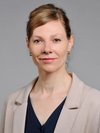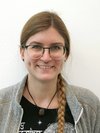MOMENT (Permafrost Research Towards Integrated Observation and Modelling of the Methane Budget of Ecosystems)
Funding: BMBF - Federal Ministry of Education and Research
Project period: 2022 - 2025
Cooperations:
Prof. Dr. Christian Beer, PD Dr. Christian Knoblauch, Prof. Dr. Lars Kutzbach - University of Hamburg
Prof. Dr. Janet Rethemeyer - University of Cologne
Prof. Dr. Victor Brovkin - Max Planck Institute for Meteorology
Dr. Mathias Göckede - Max Planck Institut für Biogeochemistry
Prof. Dr. Julia Boike - AWI Alfred-Wegener-Institute Helmholtz-Centre for Polar and Marine Research
Prof. Dr. Torsten Sachs - GFZ Deutsche GeoForschungs Zentrum
Prof. Dr. Georg Guggenberger - Leibniz University Hannover
The MOMENT project will close important gaps in the process understanding of the methane cycle in northern latitudes using laboratory studies, multi-scale methane flux observations and modelling based on state-of-the-art infrastructure. For this purpose, investigations of the recent carbon cycle in West Greenland (Disko Island) will be carried out. The data obtained are combined with existing data acquired in Siberia over the past decades and become an important basis for model evaluation. The overall goal is to reduce uncertainties in future greenhouse gas projections. Section Geomicrobiology is leading subproject 2 (SP2) Methane production & oxidation “Process studies on methane production and oxidation: from micro to pedon scale” of the MOMENT consortium.
The aim of this subproject (SP2) is to decipher the response of methane (CH4) cycle processes in permafrost-affected terrestrial ecosystems to climate change. The knowledge gained will be used to include into and improve model-based predictions of CH4 formation, oxidation, and release. To achieve this goal, SP2 investigates the effects of various biotic and abiotic environmental factors (soil water content, redox potential, temperature, organic matter quality, alternative electron acceptors, microbial food webs) on CH4 production, oxidation, and release of CH4 versus carbon dioxide (CO2), as well as their ages. To this end, SP2 combines (1) observations and measurements directly in the field in the tundra of Greenland at different seasons with (2) elaborate laboratory studies and experiments, including incubation of intact soil columns under different environmental conditions.
More information can be found on the MOMENT homepage:
(https://www.moment-permafrost.uni-hamburg.de/en.html).




